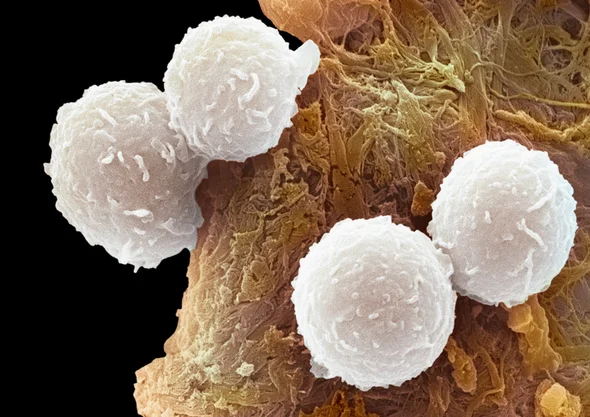A decade in the past, CAR T cell remedy modified the world of most cancers remedy, providing a personalised strategy to sufferers with blood cancers like leukemia.
However getting that specialised remedy to sufferers is dear and time consuming. It could actually take as much as two months to reap a affected person’s T cells and reprogram them into cancer-fighters — a nonstarter for a lot of younger sufferers with aggressive most cancers.
These sufferers “haven’t got months or years to dwell,” mentioned Dr. Mohamed Kharfan-Dabaja, director of Blood and Marrow Transplantation and Mobile Therapies on the Mayo Clinic in Florida. “They’ve weeks.” Kharfan-Dabaja was not a part of the brand new analysis.
A novel strategy to CAR T (chimeric antigen receptor T cell) remedy goals to chop down that turnaround time considerably. As an alternative of reprogramming every affected person’s cells, researchers are testing the protection of utilizing common, or “off the shelf,” CAR T cells from different sufferers, preprogrammed to combat most cancers. These cells are then tweaked additional utilizing one other gene-modifying expertise — CRISPR — to make sure they aren’t rejected by the affected person’s personal immune system.
Scientists at College Faculty London in the UK examined the protection of the experimental strategy in six kids — principally toddlers — with superior leukemia. The analysis was printed Wednesday within the journal Science Translational Medication.
Typical remedies, like chemotherapy, had already failed within the six kids within the research, a part 1 medical trial. The objective was to find out whether or not the brand new strategy was protected. The scientists will decide whether or not it’s efficient in future, bigger research.
“These are very troublesome kids to deal with,” mentioned Wassim Qasim, a research creator and professor of cell and gene remedy at Nice Ormond Road Hospital for Kids in London.
The objective of the brand new remedy strategy is not essentially healing; as a substitute, it is to get sufferers into remission in order that they’re properly sufficient for a bone marrow stem cell transplant.
The brand new strategy is a “bridge to transplant,” mentioned Dr. Stephen Gottschalk, head of the Division of Bone Marrow Transplantation and Mobile Remedy at St. Jude Kids’s Analysis Hospital in Memphis. “If they don’t seem to be in remission earlier than transplant, their chance of relapse might be 80%.”


